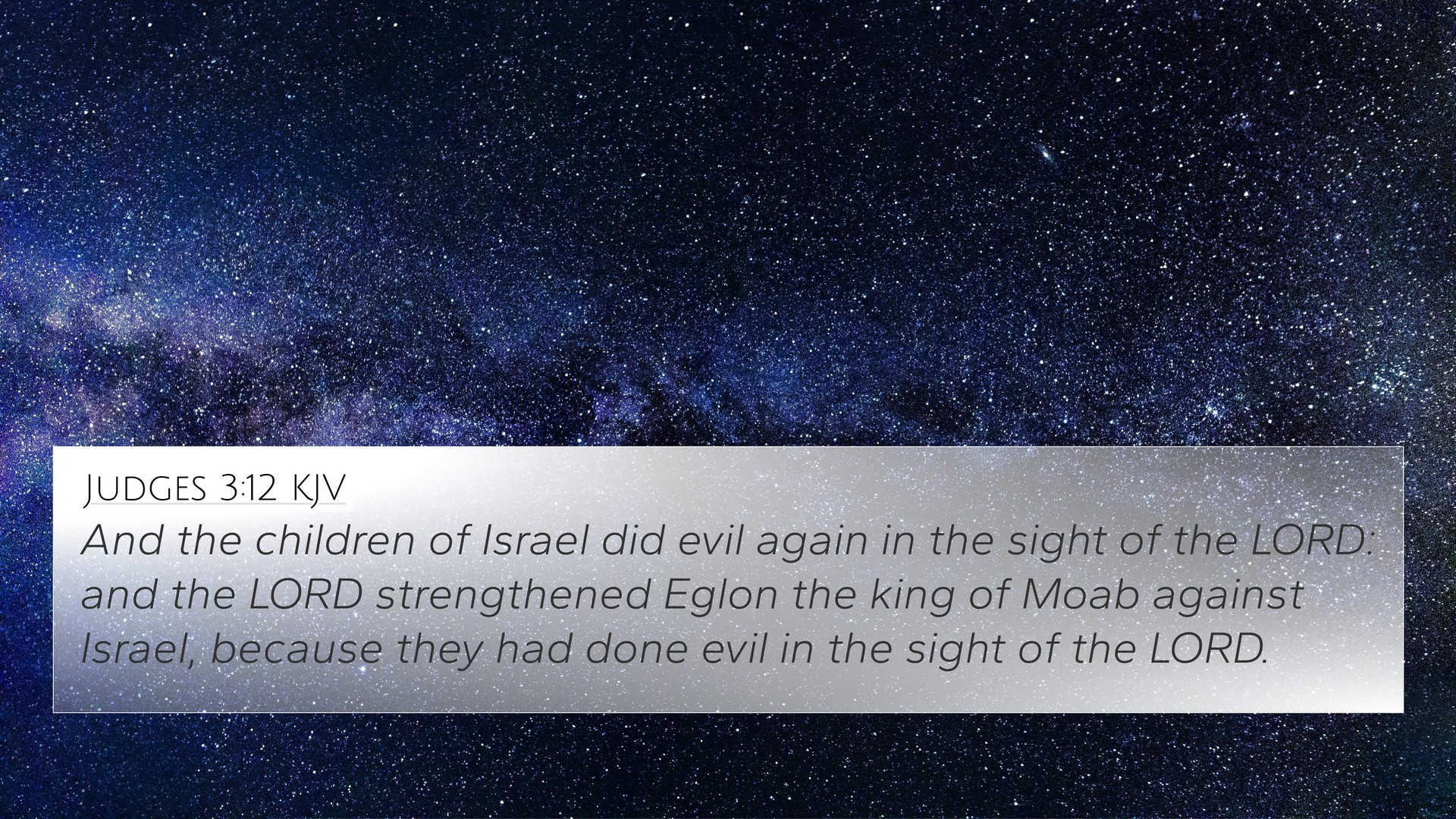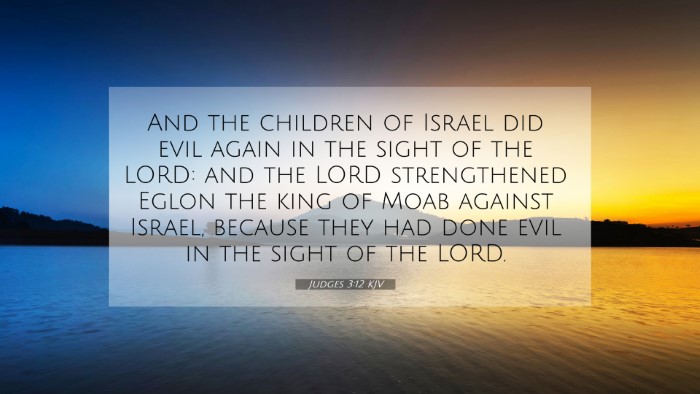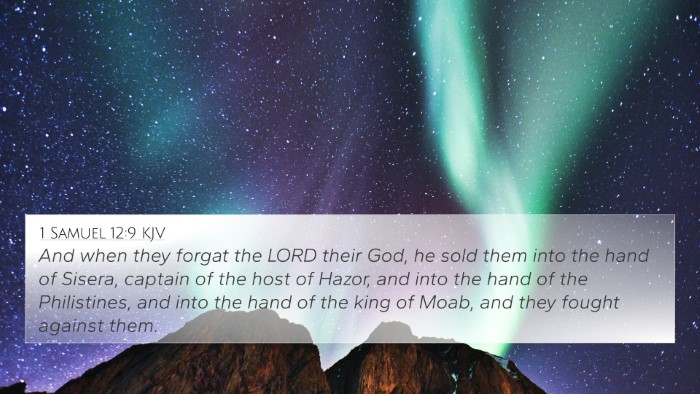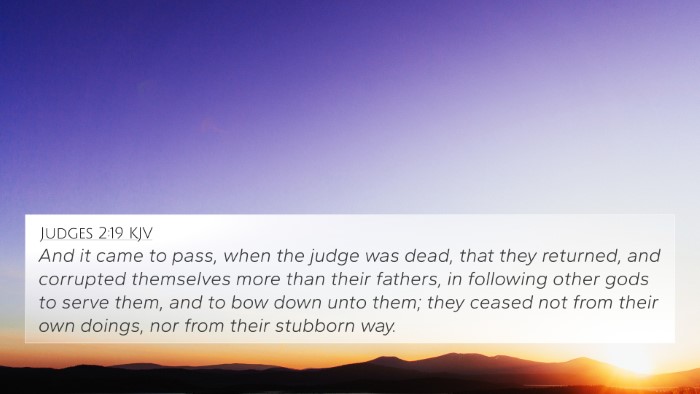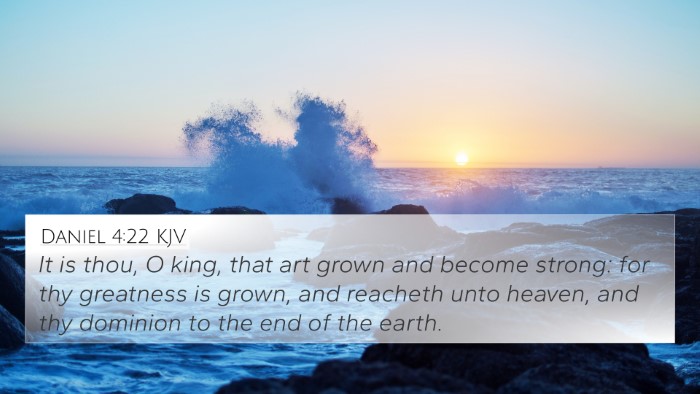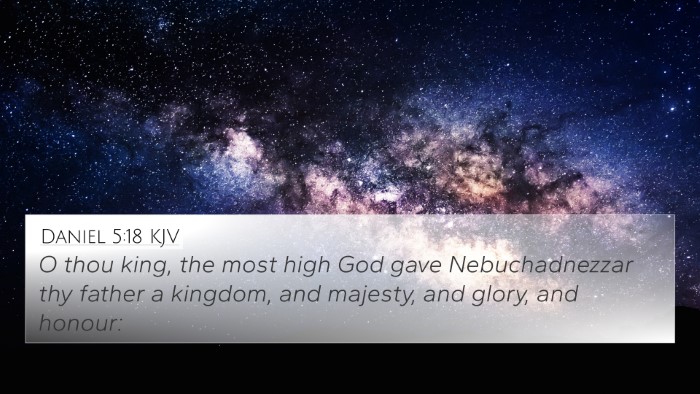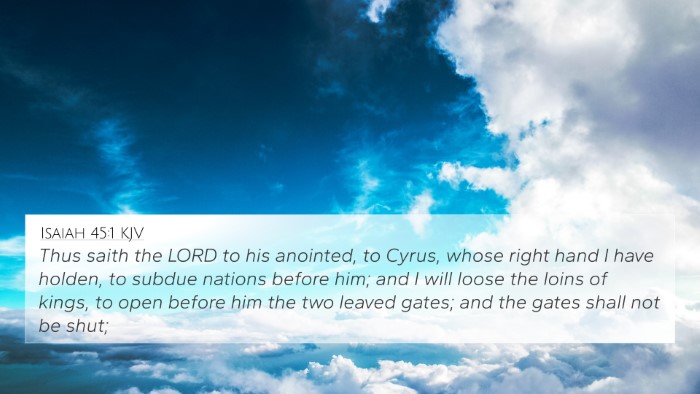Understanding Judges 3:12
Judges 3:12 states: "And the children of Israel did evil again in the sight of the Lord: and the Lord strengthened Eglon the king of Moab against Israel, because they had done evil in the sight of the Lord."
This verse serves as a pivotal moment in the Book of Judges, illustrating a recurring theme: the cycle of sin, judgment, repentance, and deliverance among the Israelites.
Verse Analysis and Commentary
Insights derived from prominent public domain commentaries shed light on the meaning of Judges 3:12:
-
Matthew Henry: He emphasizes the notion of divine judgment that follows the cycle of rebellion against God. Henry points out that God's allowance of Eglon to rise against Israel is a direct consequence of Israel's persistent sin and idolatry, reinforcing the idea of divine retribution.
-
Albert Barnes: Barnes highlights God’s sovereign control over nations, noting that He enabled Eglon to overpower Israel to discipline them. This reflects the theological concept that God uses even pagan rulers to accomplish His purposes and to draw His people back to repentance.
-
Adam Clarke: Clarke elaborates on Israel's moral failings, indicating that their turning away from God led to external oppression. He stresses that the Israelites' sins were often repeated, showcasing their need for a savior, an idea that resonates throughout the Judges narrative.
Thematic Connections
The themes present in Judges 3:12 can be linked to various scriptures, deepening our understanding through Bible verse cross-references, such as:
- Deuteronomy 28:15-68: The consequences of disobedience to God.
- Romans 1:24-28: The concept of God giving people over to the desires of their hearts in response to rebellion.
- 2 Chronicles 36:15-17: How God sends warning through His messengers before judgment.
- Galatians 6:7: The principle of reaping what one sows.
- Isaiah 10:5-6: The use of Assyria as an instrument of God's wrath against Israel.
- Judges 2:14: The Lord’s anger kindled against Israel, leading to oppression.
- Psalm 106:40-42: A reflection on God's anger towards Israel and their oppression.
Conclusion
Judges 3:12 encapsulates a critical moment in Israel's history, demonstrating the cyclical nature of their relationship with God, marked by sin and subsequent judgment. The insights provided by various commentaries—coupled with the cross-references to other Biblical texts—highlight the consistency of this theme throughout Scripture, offering valuable lessons on obedience, the consequences of sin, and the need for divine deliverance.
Final Thoughts on Cross-Referencing
The ability to understand and make connections between Bible verses enhances our biblical literacy. Utilizing tools for Bible cross-referencing allows believers to uncover deeper meanings and thematic resonances across the scriptures, leading to a richer study of God's word.
Through a comprehensive approach to Bible concordance and Bible cross-reference guides, readers can explore how narratives and teachings interlink, offering a cohesive view of biblical theology and moral instruction.
Related Cross-Referencing Themes
Readers interested in further studies may explore various cross-referenced themes in the Bible, using methods such as:
- Identifying connections between Old and New Testament scriptures.
- Examining the parallels between the teachings of Jesus and the prophets.
- Analyzing the messages of the epistles in relation to the Law and the Prophets.
- Exploring how Psalms are echoed in New Testament teachings.
